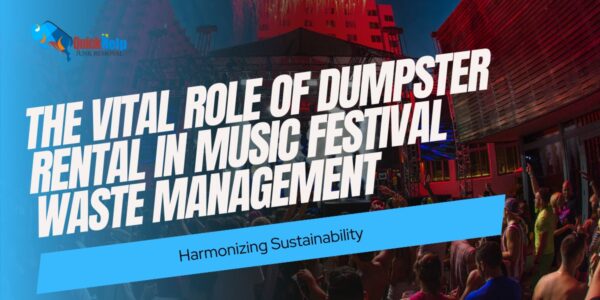The Rise of Dumpster Libraries
Considering The Rise of Dumpster Libraries in an era dominated by digital media, the allure of physical books continues to captivate readers around the world. However, with limited space and the constant influx of new titles, book lovers often find themselves facing a dilemma—what to do with their beloved books once they’ve finished reading them? Enter dumpster libraries, a novel concept that combines the convenience of junk removal services with the promotion of community book exchanges. In this article, we’ll explore the rise of dumpster libraries and how they are encouraging the sharing of knowledge and fostering a sense of community.
The Concept of Dumpster Libraries
Dumpster libraries, also known as book exchange bins or book sharing stations, are innovative initiatives that aim to create accessible and communal spaces for book lovers. These libraries typically consist of repurposed dumpsters or large containers strategically placed in public areas such as parks, community centers, or residential neighborhoods. The concept is simple: anyone can donate books they no longer need or pick up a new read, fostering a culture of reading and sharing within the community.
Benefits of Dumpster Libraries
- Promoting Literacy and Reading Culture: Dumpster libraries offer an excellent opportunity to promote literacy and a love for reading within communities. By providing easy access to free books, these libraries break down barriers and encourage people of all ages and backgrounds to indulge in the joy of reading. Furthermore, the presence of dumpster libraries serves as a constant reminder of the importance of literature in our lives.
- Sustainable Waste Management: By repurposing dumpsters for book storage, dumpster libraries contribute to sustainable waste management practices. Instead of books ending up in landfills, they find new homes and readers. This eco-friendly approach helps reduce waste and promotes the circular economy by extending the lifespan of books.
- Building Community Bonds: Dumpster libraries create spaces for individuals to connect and engage with their neighbors. As people visit these book exchange stations, they not only discover new stories but also initiate conversations, share recommendations, and forge friendships. The act of giving and receiving books cultivates a sense of belonging and strengthens the social fabric of communities.
Setting Up a Dumpster Library
- Identifying Suitable Locations: Choosing the right location for a dumpster library is crucial. Consider high foot-traffic areas like parks, community centers, or near popular gathering spots. Seek permission from local authorities or community organizations to ensure the library is set up legally and in a place where it can thrive.
- Donation and Collection: Encourage community members to donate books they have already read or no longer need. Spread awareness about the dumpster library through social media, local newspapers, and community bulletin boards. Establish regular collection and maintenance schedules to ensure a constant flow of new titles.
- Maintenance and Upkeep: Regularly inspect and organize the books within the dumpster library. Keep the area clean, well-lit, and protected from weather elements. Involve volunteers from the community who can help manage the library, ensuring its sustainability and longevity.
Promoting Dumpster Libraries
- Social Media Outreach: Utilize social media platforms to promote the dumpster library and engage with the community. Share updates on new book arrivals, community events, and success stories of readers who have benefited from the library. Encourage users to share their experiences and recommendations.
- Collaborate with Local Organizations: Partner with local schools, libraries, and community centers to expand the reach and impact of the dumpster library. Collaborative events such as book drives, author visits, or reading clubs can further enhance community engagement and foster a love for reading.
Dumpster libraries are an innovative solution that combines the convenience of junk removal services with the power of community book exchanges. By repurposing dumpsters and providing easy access to free books, these libraries promote literacy, sustainable waste management, and the creation of strong community bonds. As more communities embrace this concept, the rise of dumpster libraries is sure to encourage a culture of reading, learning, and sharing knowledge. So, let’s embrace this trend and spread the joy of books in our own neighborhoods.




